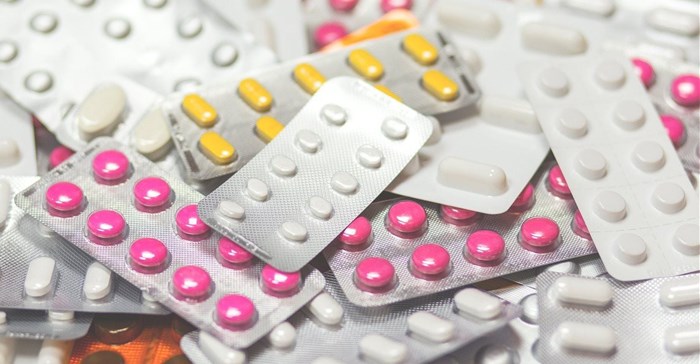Annual World Patient Safety Day is a global public health awareness day observed on 17 September. The World Health Organisation (WHO) has selected 'Medication Safety' as this year's theme, shining a spotlight on the threat posed by medication errors and medication-related harm to patients and health systems alike.
The WHO’s global public health days offer an opportunity to mobilise support for and draw attention to major health issues.
There are nine days and two weeks officially mandated as global public health days, and the next one on the calendar is World Patient Safety Day. The signature mark of the global campaign is to light up iconic monuments, landmarks, and public places in the colour orange.
2022 marks the fourth successive year that the day will be observed, following its establishment in 2019 by the 72nd World Health Assembly, a decision-making body of WHO.
Understanding the challenge
Medicines are the most commonly used interventions in healthcare yet inversely, unsafe medication practices and medication-related harm account for as much as 50% of overall preventable harm in medical care.
While medication errors can result from human error and adjacent factors that include fatigue, employee shortages, and poor environmental conditions affecting the prescribing, dispensing and monitoring of medicines, they can also be emblematic of systemic shortcomings and weak medications systems.
WHO estimates if medication errors were eradicated, this would reduce global health expenditure by more than $40bn.
The Covid-19 pandemic, owing to the uncertainty and rampant misinformation surrounding it, triggered an increase in various unsafe medicine practices including excessive polypharmacy, uninformed and often erratic self-medication, and most notably the off-label use of medicines that is using a medicine for an indication other than that for which it was intended by the manufacturer.
For example, during the height of the pandemic, ivermectin, a veterinary antiparasitic drug, was touted as a prevention or treatment for Covid-19, despite a lack of credible evidence proving its efficacy against the virus.
Growing public interest in the drug and reports of patients requiring medical attention and hospitalisation in some instances, after self-medicating with ivermectin intended for livestock, compelled the United States Food and Drug Administration (FDA) to issue various communications conscientising the public against the incorrect use of the drug.
Similar corrective and educational measures had to be taken by the FDA when then President, Donald Trump, proclaimed that hydroxychloroquine, a malaria treatment, could prevent or treat Covid-19.
The presidential recommendation of hydroxychloroquine highlighted a key contributor to medication-related harm, the threat posed by the encroachment of political actors into the health and medical regulation space.
Domestically, the South African Health Products Regulatory Authority (SAHPRA) was also subjected to political pressure to fast-track approval of Covid-19 vaccines from Russia and China.
SAHPRA remained resolute and did not yield to the pressure to cloud its science-based approach to approving health products, ensuring the safety of the South African public was not compromised.
"First, do no harm"
The phrase, “first, do no harm", is attributed to the ancient Greek physician Hippocrates, from whose work the Hippocratic Oath, an oath of ethics historically taken by physicians, is derived, underpinning the importance of ethical and moral behaviour within medical care.
Innovative pharmaceutical companies have a vested interest in making sure members of the public use medicines safely. Various stringent checks and balances are in place to guarantee that the medicines developed, marketed, sold and distributed by pharmaceutical companies subscribe to Hippocrates’ aphorism and all the additional legislation, rules and regulations that govern medicines and healthcare.
To this end, international bodies such as the International Federation of Pharmaceutical Manufacturers & Associations (IFPMA), and domestic ones such as the Marketing Code Authority (MCA), with which IPASA is affiliated, are integral.
SAHPRA plays a critical role in patient safety too, as an enabler of access to safe, effective and quality health products in South Africa. In 2021 the regulator launched the Med Safety app for the self-reporting of suspected adverse drug reactions.
Dr Elizabeth Meyer 8 Aug 2022 The app is recommended for both patients and healthcare professionals and is an invaluable tool for creating an awareness of medicines, their potential adverse effects and pharmacovigilance.
Empowering patients
Patients are key stakeholders in this effort to reduce medication-related errors and harm. Tangible change is impossible without empowering patients and families to be actively involved in the safe use of medication.
Below is a list of advice and tips consumers should be aware of whenever receiving medicines:
Don’t take medicine prescribed for someone elseDiscard medicine that has passed its expiry dateNever exceed the dosage recommendations for adults or childrenAsk your pharmacist for advice before self-medicationRead the patient-information leaflets (PILs) included with your medicationAvoid off-label medicine useBe aware that some medicines contain addictive drugs.Effectively promoting patient safety is a collective responsibility that must include, as WHO outlines, “the development of national campaigns, organisation of policy forums, advocacy and technical events, capacity-building initiatives” around the issue.
As the Innovative Pharmaceutical Association of South Africa, we are committed to ensuring access to quality healthcare and creating awareness in the industry about medication safety.



































